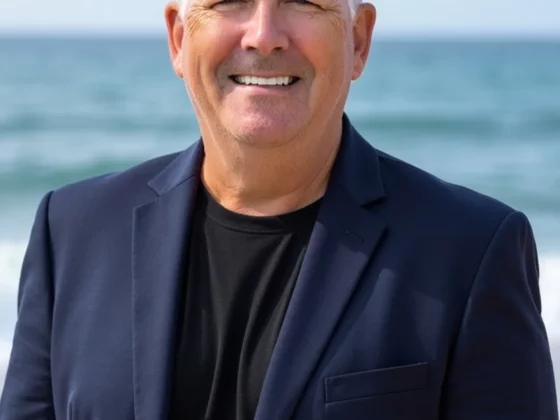In our dynamic industry, the challenge of adopting a proactive versus a reactive approach in commercial strategy is more important than ever. Traditionally, commercial strategy teams have primarily responded reactively to shifts in the market, focusing on managing rates and filtering inbound business. However, this approach is no longer effective as we focus on increased profitability and asset value. In this blog, we delve into why a proactive strategy, aimed at intentionally targeting a profitable business mix, is crucial for driving profitability and how commercial teams can adapt to this paradigm shift.
Understanding the Reactive Approach
In the past, the role of commercial teams in hotels has been mostly reactive. We’ve responded to market demands as they arose and adjusted rates, managed inventory, and implemented arrival and stay restrictions accordingly. Without realizing it, we were just working with what we were given, instead of proactively pursuing the best combination of room nights by rate category and channel. While this way of doing business served us well in the past, it inherently limits the potential for maximizing revenue, profitability, and asset value. The reactive strategy of our past often led to complacency, where opportunities for higher revenue and better market positioning might have been overlooked once a certain level of success is achieved.
The Need for a Proactive Stance
A proactive approach, in contrast, involves anticipating market trends, understanding customer segments, and strategically targeting a business mix that aligns with the hotel’s profitability goals. This goes far beyond just managing rates and availability (we have RMS tools purpose-built to do this!); it’s about creating and enacting a strategic plan to capture the most profitable mix of business.
- Targeting the Right Mix
The key to a proactive strategy is in targeting a business mix that delivers the highest profitability. This involves identifying the most profitable rate category and channel combinations based on the capturable demand in the market. This is a data-driven effort and cannot rely on gut feelings or past market performance. Once capturable demand has been established, the commercial strategy team can make a unified decision around what opportunities they will pursue. Then, resource deployment, including staffing and marketing efforts, can be tailored to win these opportunities.
For example, there may be an additional opportunity to capture transient guests on Thursday or Sunday who are looking to extend their one- to three-day business trip and take advantage of the flexibility to work from anywhere. What kind of activities can be deployed to take advantage of these opportunities? Length of stay discounts? Marketing?
- Data-Driven Decisions
A successful proactive approach is heavily reliant on data and access to data. Commercial strategy teams need to analyze past trends, understand the forecast of future demand, and be familiar with how guest booking behavior may change seasonally. This data helps in making informed decisions about which segments to target and how to tailor commercial strategies to capture opportunities in these segments.
- Investment in Resources and Training
Shifting from a reactive to a proactive approach may require additional resources and training, such as the Commercial Strategy Certification powered by Kalibri Labs. Not all discipline experts on a commercial strategy team (revenue, sales, marketing) are equipped with the skills to identify and capture the optimal business mix. Investment in training commercial teams to develop these skills is crucial.
Overcoming the Historical Role of RM Teams
The traditional role of commercial teams has been centered around managing day-to-day rates, inventory availability, and outlier management.
- Expanding Traditional Roles
Commercial strategy teams should be empowered to take on a more strategic role. This includes involvement in marketing decisions, collaboration with sales teams, and participation in long-term business planning. By contributing in these areas, commercial teams can directly influence the type of business the hotel targets and captures, leading to enhanced profitability and asset value.
- Cultivating a Strategic Mindset
Commercial team leaders need to cultivate a strategic mindset that goes beyond daily operational tasks and outlier management. This involves understanding the broader business goals of the hotel or group of hotels and how the commercial function can contribute to these goals. It’s about seeing the bigger picture and aligning commercial strategies with the owner’s overall vision and goals.
- Continuous Learning and Adaptation
The hospitality industry is constantly evolving. Commercial teams need to be committed to continuous learning, including adaptation and adoption of new tools and metrics. Staying abreast of market trends, technological advancements, and changing guest behaviors is key to success as a proactive commercial team.
Shifting from a reactive to a proactive approach in hotel revenue management is not just about changing strategies; it’s about a fundamental shift in mindset to one that is focused on commercial strategy. By actively targeting a specific business mix and using data-driven strategies, hotels can significantly enhance their profitability. However, this requires commercial teams to step beyond their traditional roles and embrace a more strategic and dynamic function. With the right training, resources, and mindset, commercial teams can effectively lead their hotels towards greater profitability, asset value, and success in the competitive hospitality market.
—
This blog post provides an overview of the importance of a proactive approach in hotel revenue management, emphasizing the need for commercial teams to evolve beyond their traditional roles to drive profitability.




